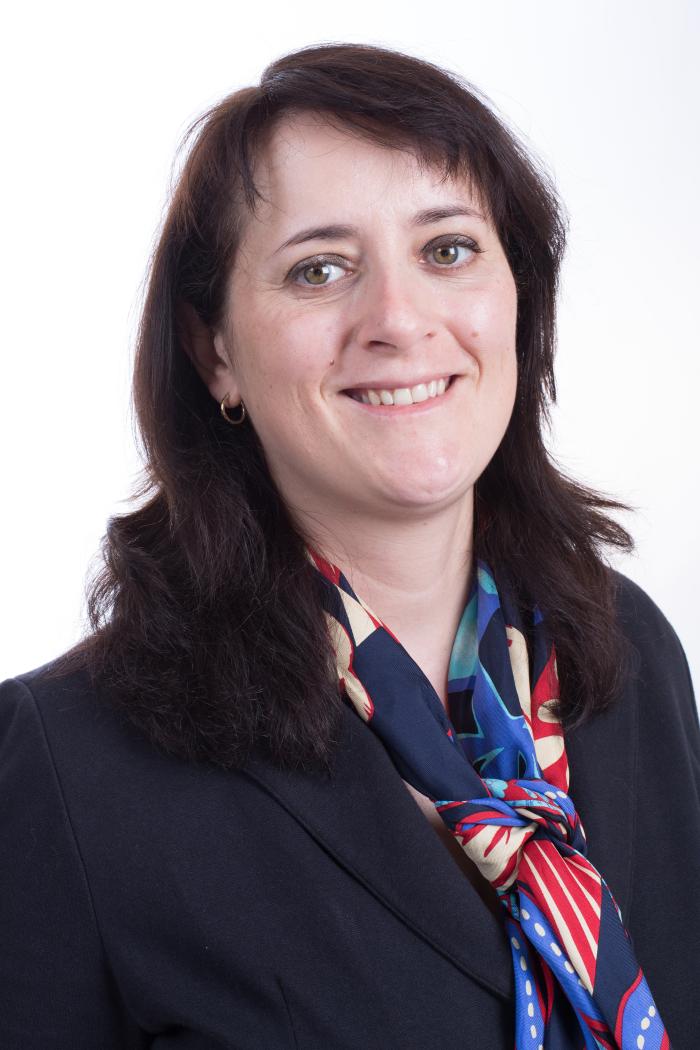This article is part of the "Women in Science" series, which highlights the careers of women at École Polytechnique.

Former student at Ecole Normale Supérieure de Cachan, holder of a PhD in Economics, Patricia Crifo is the Director of the Smart Cities and Urban Policy Master at École Polytechnique and is co-director of the chair Finance Durable et Investissement Responsable (TSE – IDEI and Ecole Polytechnique). She is also a researcher of CIRANO (Montreal) and a member of the Conseil Economique du Développement Durable, de la Commission des Comptes et de l’Economie de l’Environnement, du Jury du prix du Forum pour l’Investissement Responsable et de la fondation pour la connaissance des énergies. She shared with us her opinion about the status of women in science and in the workplace in general.
In your opinion, how does École Polytechnique support Women regarding the scientific field?
By giving responsibilities and the means to succeed. As the Director of the Smart Cities and Urban Policies Master, École Polytechnique offers me great working conditions to produce quality work. In my case, I have an entire team that helps me to supervise the Master and helps me during the selection phase. École Polytechnique makes no distinction whether you are a woman or a man.
Do you have any role model of a woman scientist or from another sector?
I am thinking about Isabelle Autissier, a French sailor, navigator and president of WWF France, who has an inspiring career. She is an advocate of ideas and initiatives which are dear to her. Every year, she navigates the seas for two months. She has not given up on her passion and continues to be involved in environmental protection.
In your opinion, why are women less represented in Science? How could this situation be improved?
I think that the under-representation of women in science is quite endogenous. There is a phenomenon where women go into sectors in which they will feel comfortable that is to say that are not male dominated. Economists work on the implementation of public policies to solve this situation. Women must be encouraged to go into areas that interest them the most. There is a current debate about quotas. At first, I was against the idea of quotas as I thought it only meant forcing women to go into one or another sector, but my opinion has changed. We realised that in many cases, quotas were the only way to break a negative dynamic. Within the framework of my research in Economics, I am working on the executive boards’ composition, governance body in big companies. Laws have been adopted in all the OECD member countries to allows gender balance in executive boards as there was almost no woman in those organisations in the past. Some companies assumed there were not enough sufficiently qualified women, which is difficult to accept knowing that there is a glass ceiling.
When women do not have access to managerial positions, they will never be able to be members of executive boards. The solution was then to enforce quotas which allowed to develop a group of skilled women that could be hired by companies and therefore lead to improve gender balance.
The same goes for the representation of women in science. We need to break the negative dynamic so that women can be more present in the sector. Thereafter, it is essential to evaluate the efficiency of the system. Studies have shown that if women are not chairman of strategic committees (audit or compensation), which are the most important positions within executive boards, quotas will have much less impact. Companies really need to play the game by recruiting women at strategic positions. This is how the situation can evolve in a positive way.
